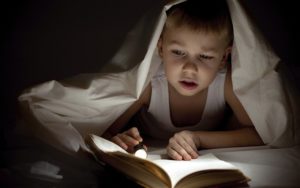
fiction helps develop empathy
We have all known and valued people who are empathetic – those who possess a deep understanding and recognition of other people’s feelings and are sensitive to what others are experiencing. Experts state there are strategies for developing empathy in children. Recently, I was driving with a seven-year-old boy when I spotted a very young girl trying to cross a busy street on her bike. I told the boy, I’m going to stop and help that little girl cross the street because I can see she is scared. The boy replied, “No, don’t do that! I don’t think we should help her.” I asked, “Why?” and he stated with exasperation, “Why would we help her? We don’t even know her.”
Perhaps he had a point in this world of “stranger danger” and the possibility of a helpful adult’s actions being misconstrued. However, the ability to notice the distress of others, and to be affected by it, is a critical component of empathy. There are several methods to developing empathy in children. Some of the more obvious include parental modeling and talking about others’ feelings. However, more surprising is that researchers at The New School in New York City found reading literary fiction actually plays an important role in the development toward understanding the thinking and feeling of others, and therefore developing empathy in children.
Emanuele Castano, a social psychologist, and PhD candidate David Kidd, conducted five studies with 1,000 participants and gave them different reading assignments: excerpts from genre (or popular) fiction, literary fiction, nonfiction, or no reading at all.
As a teacher, I found using proper questioning helped when reading fiction aloud to my students, such as, “How do you think that made the character feel?” or “What might the character be thinking?” This causes the child to put themselves in the other person’s shoes in order to look at the world from that position.
Personally, I remember being especially moved by books in my youth. I felt empathy for the overweight girl in Judy Blume’s Blubber, heartache for the bullied girl in The Bears House by Marilyn Sachs, and sympathy for the child with cerebral palsy in Jean Little’s, Mine For Keeps. This may be explained by researchers at Emory University in Atlanta, as they found that reading fiction causes us to think we are part of the story. The empathy we feel for characters creates a connection in our brains that leads to the same compassion towards real people and helps in developing empathy in children.
Even with technology that shrinks our world, many of us spend much of our time in homogenous groups and are not often exposed to those who have dramatically different experiences from our own. Yet, once established, the ability to be empathetic to others carries across to the many situations that may arise throughout our lives.
While walking down the hallway of a school, I witnessed a third grade boy drop his school box, causing crayons and markers to go rolling down the hall in a cascade of colors. The rest of the class continued to walk on by. However, one classmate stopped, kneeled down and helped collect the strewn items. I told the student that I was proud of him for stopping to help. He replied, “I felt sorry for him, I’d want someone to help if that happened to me.”
How can we ensure today’s children develop this kind of empathetic behavior, instead of being children who walk on by?
Through parental modeling, opportunities for volunteerism, and the encouragement of literary fiction, perhaps more children will grow into altruistic adults, the kind of adults who will stop to help a person in need.




I’ve found helpful information in these articles that will better enable me to advocate for my gifted students.